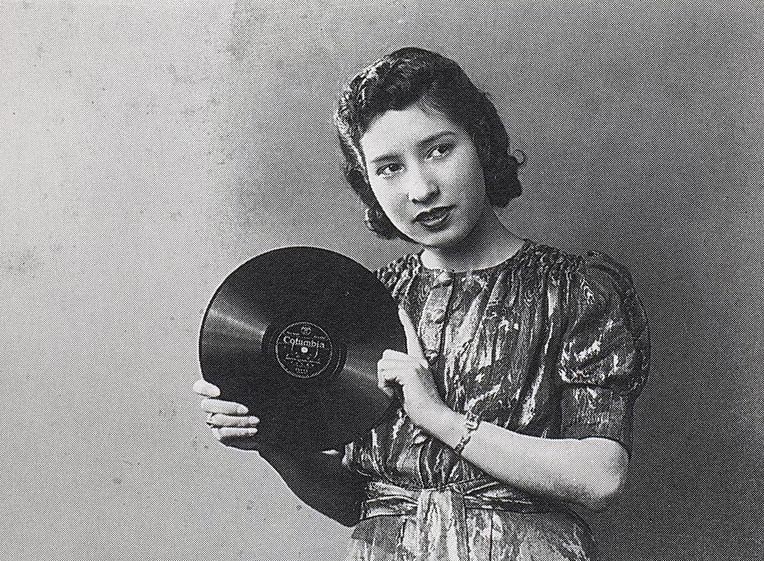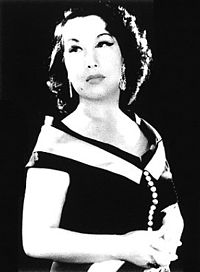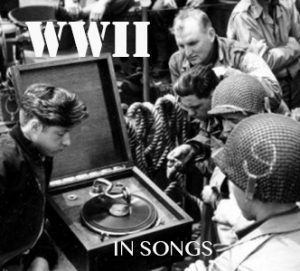
Ryūkōka and Japan during WWII – The World War II in Songs Playlist

This song was released in 1939 as part of a movie and initially it got banned by Japanese authorities. By then Noriko Awaya had been popular for a while and she was known as the ”Queen of Blues” – named after another song of hers. This song translates to ”Night plattform”.
A different perspective on WWII
From a western perspective we usually see the war as starting on that faithful first September day in 1939. But other things happened that came to play a major role for how the dices came to fall. Especially for Japan where everything started much earlier.
After the depression in 1931 Japan occupied Manchuria and eventually set eyes on Mongolia which lead to clashes along the border with the Soviet army. Mongolia was a communist state, allied to Soviet at the time. These clashes all culminated in the battle of Khalkhyn Gol (a river close to the border) in 1939. And to make a long story short, the Soviets smashed the Japanese. This defeat moved Japan away from Northeast Asia. Instead they started focusing on Southeast Asia and especially the petroleum and mineral-rich Dutch East Indies.
Now, a few important pacts:
- In 1939 Molotov–Ribbentrop Pact where Germany and Soviet agree not to attack each other.
- In 1940 Japan signs the Tripartite Pact becoming one of the ”Axis powers”.
- In April 1941 Japan signs the Soviet–Japanese Neutrality Pact, promising not to attack each other.
- In June 1941 Germany attacks Soviet ignoring their pact from 1939.
At the middle of this the Second Sino-Japanese War was going on (1937-1945), fought primarily between China and Japan. Japan aimed to secure access to raw material reserves and other economic resources in the area, food and labour.
In September 1940, the Japanese invaded French Indochina to prevent the China from importing arms and fuel. As an answer to this United States embargoed all oil exports to Japan. The Japanese Navy estimated it had less than two years of bunker oil remaining since 80% of Japans oil was imported from the U.S. and you need oil to fight wars.

In 1941 Japan and the U.S. started negotiations in an effort to improve relations. During these negotiations, Japan considered a withdrawal from most of China and Indochina after drawing up peace terms with the Chinese. However these negotiations fell apart one month after the German invasion of Soviet.
One could think that a two front war agains Soviet would have made at least some sense for Japan at this point. But instead Japan and Soviet reaffirmed their neutrality pact. While Japan kept getting cornered in Southeast Asia. This eventually lead them to attack Pearl Harbor, thereby forcing USA into the war on 7 December 1941.
Soviet and Japan at the end of WWII – in 1945:
- On June 30 Japan’s ambassador in Moscow, to try to establish ”firm and lasting relations of friendship” – opening up for negotiations. But the Soviet with the other Allies had agreed on ”Unconditional Surrender” and responds with delaying tactics, encouraging the Japanese without promising anything. In a way giving them false hopes for a Soviet-mediated peace.
- On August 6 the U.S. drops the first nuclear bomb on Hiroshima
- On August, 8 the Soviet Union invades the Japanese territories in Manchuria, Korea, and the southern part of Sakhalin island.
- On August 9 the U.S. drops the other nuclear bomb on Nagasaki.
- On August 15 Japan surrenders.
Japanese music went back to a western influence after the war.
Here’s the playlist with music from World War II:
In Japan the musical genre of ”ryūkōka” had been popular since the 20’s. It was influenced by western music, however after 1936 war songs began to fill the airwaves and many musicians were forced to write more nationalistic songs. This song was released in 1939 as part of a movie and initially it got banned…
In Japan the musical genre of ”ryūkōka” had been popular since the 20’s. It was influenced by western music, however after 1936 war songs began to fill the airwaves and many musicians were forced to write more nationalistic songs. This song was released in 1939 as part of a movie and initially it got banned…